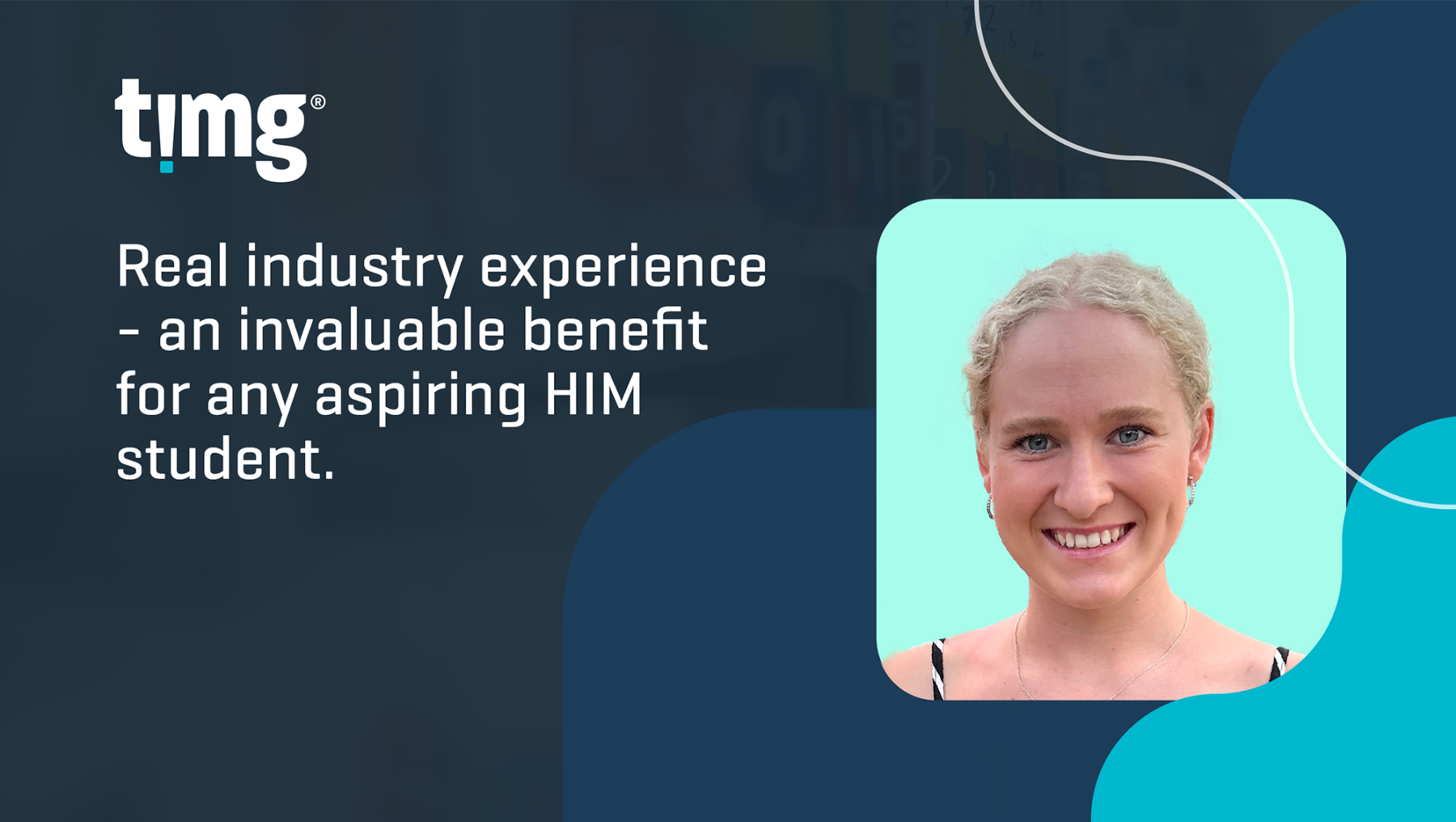Real industry experience – an invaluable benefit for any aspiring HIM student
Real industry experience working with medical records – an invaluable benefit for any aspiring HIM student Hiring a final year Health Information Management (HIM) student for a part-time job has many benefits for TIMG. These…

Real industry experience working with medical records – an invaluable benefit for any aspiring HIM student
Hiring a final year Health Information Management (HIM) student for a part-time job has many benefits for TIMG. These students are often well-versed in the latest health information systems and bring fresh perspectives to tasks. Their education in HIM provides them with a solid foundation in medical terminology and health data management. And Annika O’Shea, is no exception. Annika’s versatility and ability to learn new skills quickly has made her a valuable asset to the medical records team at TIMG Queensland.
TIMG: Annika, thank you for agreeing to talk to us. It’s not every day that we interview staff working with medical records! To start, can you tell us what your role at TIMG entails?
AOS: I currently work with the medical records team at TIMG Queensland, and my primary activity is around the cataloguing of medical records. For example, if a hospital is moving files into off-site storage, I give each file a TIMG barcode which I then upload into Coalesce™. These barcodes then get given a location that allows files to be easily found in the warehouse when required by the hospital.
TIMG: We are reliably told that you are well on your way to becoming a Health Information Manager. Tell us what you are studying.
AOS: I graduated year 12 in 2021 and knew immediately what I wanted to do. I enrolled in my Health Information Management degree at QUT in 2022 and I’m pleased to be finishing the degree at the end of this year. Working at TIMG is perfect for me in terms of both part-time work while studying and because I get to work with real-life scenarios around the proper management of health records.
TIMG: Why did you choose to study health information management?
AOS: Throughout high school, my interests in health, business, and IT steadily evolved, yet a clear career path eluded me. Nursing caught my attention initially, but I soon recognised that handling injuries and blood was not my calling. A decisive consultation with my school’s career advisor revealed the Health Information Management degree at @QUT as an option. That moment sparked a certainty in me; I wanted to chase this opportunity. My passion for aiding others now had a direction, merging my three favourite subjects into the Health Information Management (HIM) degree!
TIMG: What are the three key areas of your degree that energise you most?
AOS: My favourite aspect of the HIM degree is clinical coding because there are so many rules, codes, and standards to understand, which are forever changing which keeps things interesting. I also find it really interesting how these codes then contribute to the funding of hospitals.
Another aspect I find interesting is the release of information. People have the right to see the information that is contained in their medical records, however, there are certain circumstances where information cannot be released. There are lots of processes to learn and every case is different which I find interesting.
It’s not a specific aspect of the degree, but I love how there are so many pathways within HIM to learn. I definitely won’t be limited in options once I graduate from uni.
TIMG: In this fast-evolving digital world, we are seeing increasing integration of information management platforms. What is your take on AI as a determining influence in the evolution of health information management?
AOS: AI is revolutionising the HIM profession with its rapid growth and significant impact. It actively enhances task efficiency by identifying critical issues, such as medication errors or overlooked appointments. AI is also transforming healthcare budgeting, enabling precise forecasting for hospital activity, volume, and resource allocation. By automating data management, AI dramatically streamlines health information services. Its integration into clinical coding is not just a possibility but an impending reality.
TIMG: Do you think AI will one day fully replace health information management infrastructure?
AOS: AI will revolutionise, not replace, the health information management infrastructure. It will perform tasks efficiently, but its output will still require employee oversight for accuracy. For example, AI can auto-generate clinical codes from documentation, but due to the complexity of rules and assumptions, human validation remains crucial.
TIMG: Why do doctors have such poor handwriting?
AOS: I think doctors’ poor handwriting stems from them seeing so many patients within a day, so they need to write quickly. Doctors also write in shorthand and use acronyms which makes it hard for people who don’t know these acronyms to understand what is being said.
Or maybe they genuinely think their writing is legible so there are no problems!
TIMG: Thank you for talking to us Annika. We wish you all the best with your future career and look forward to working with you in some shape or form in the future.
AOS: Thank you for the opportunity! I will definitely stay in touch with Sean Kays and his team.
Learn more about TIMG’s Healthcare Information Management Solutions
 Your browser is very old. It's so old that this site will not
work properly as it should.
Your browser is very old. It's so old that this site will not
work properly as it should.